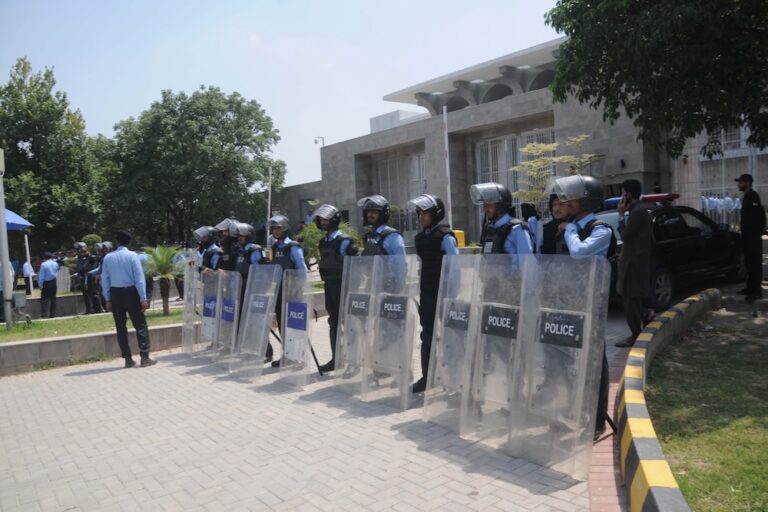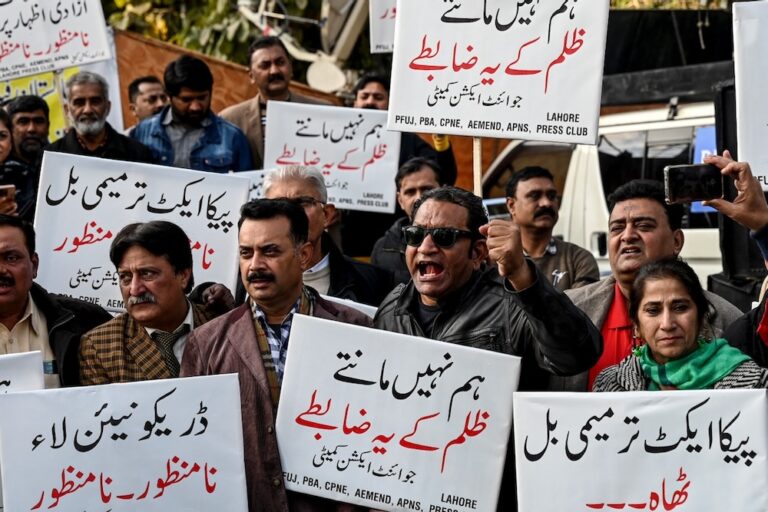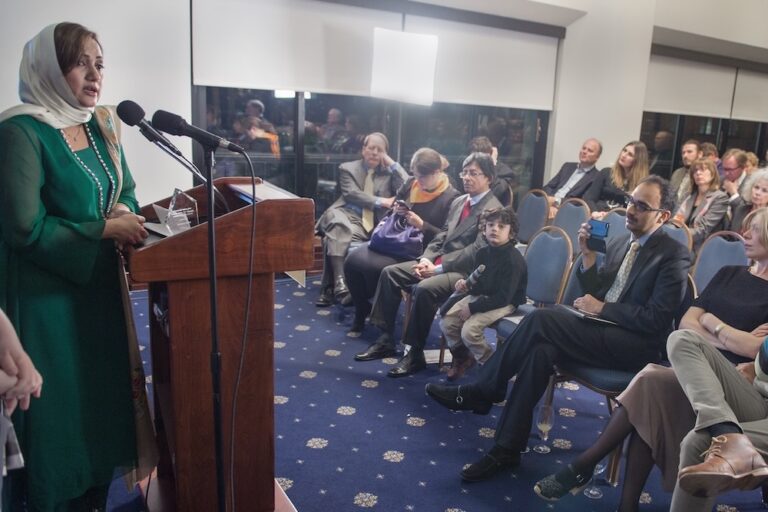Despite strong indications of ISI involvement, the commission concluded that the state, militant groups including the Taliban and al-Qaeda, and unnamed "foreign actors" could all have had a motive to kill Saleem Shahzad on the basis of his writings.
(Human Rights Watch/IFEX) – New York, January 30, 2012 – The Pakistani government should redouble efforts to find the killers of the journalist Saleem Shahzad, following the failure of the judicial inquiry commission to identify those responsible, Human Rights Watch said today. The commission concluded in its January 10, 2012 report to the government that the police failed to question Pakistan’s military intelligence officials in its criminal investigation.
Shahzad, a reporter for the Hong Kong-based Asia Times Online and for Adnkronos International, the Italian news agency, disappeared from central Islamabad on the evening of May 29, 2011. His body, bearing visible signs of torture, was discovered on May 31, near Mandi Bahauddin, 130 kilometers southeast of the capital. The circumstances of the abduction raised concerns that the military’s feared Inter-Services Intelligence (ISI) agency was responsible. In June 2011, the Supreme Court, at the request of the government, instituted a commission of inquiry into the killing.
“The commission’s failure to get to the bottom of the Shahzad killing illustrates the ability of the ISI to remain beyond the reach of Pakistan’s criminal justice system,” said Brad Adams, Asia director at Human Rights Watch. “The government still has the responsibility to identify those responsible for Shahzad’s death and hold them accountable, no matter where the evidence leads.”
The ISI has a long and well-documented history of abductions, torture, and extrajudicial killings of critics of the military and others. Those abducted are routinely beaten and threatened, their relatives told not to worry or complain as release was imminent, and then released with the threat of further abuse if the ordeal is made public. Pakistani and international human rights organizations, including Human Rights Watch, have extensively documented the ISI’s intimidation, torture, enforced disappearances, and killings, including of many journalists.
The five-member commission, which included two judges, two senior police officers, and one journalist, convened on June 21, 2011. Over six months it interviewed 41 witnesses, including Shahzad’s family members, journalists, senior ISI officials, and others. It also conducted an extensive examination of documents, including relevant emails, telephone records, and investigation reports, as well as reports by previous similar commissions.
Among those interviewed were Ali Dayan Hasan of Human Rights Watch and Hameed Haroon, president of the All Pakistan Newspaper Society (APNS) and publisher of the Dawn Group. Each had received emails from Shahzad in 2010 complaining of threats by ISI agents for his reporting on links between the ISI and al-Qaeda. On October 19, 2010, Shahzad sent an email to Human Rights Watch outlining his meeting with the ISI and asking for the email to be released “in case something happens to me or my family in future.” Shahzad sent the same email and information about other threats to Haroon, and to colleagues at Asia Times Online.
ISI officials maintained to the commission that Shahzad had cordial relations with them until shortly before his killing. Despite strong indications of ISI involvement, the commission concluded that the Pakistani state, militant groups including the Taliban and al-Qaeda, and unnamed ‘foreign actors’ could all have had a motive to kill Shahzad on the basis of his writings.
“The commission appeared fearful of confronting the ISI over Shahzad’s death,” said Adams. “Shahzad had made it clear to Human Rights Watch that should he be killed, the ISI should be considered the principal suspect. He had not indicated he was afraid of being killed by militant groups or anybody else.”
Human Rights Watch said that the investigation’s weakness was exemplified by the failure to interview another journalist, Umar Cheema, who was abducted, tortured, and then dumped 120 kilometers from his residence in Islamabad in September 2010. Cheema alleged that his abductors were from Pakistan’s intelligence agencies. It is inexplicable that the commission failed to seek Cheema’s testimony despite his very public allegations against the ISI and repeated offers to testify before the commission, Human Rights Watch said.
(. . .)


